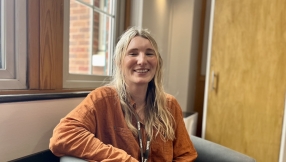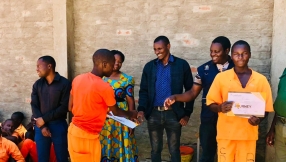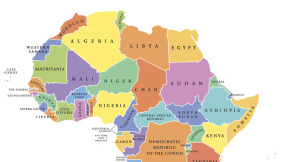As Pope Francis landed in Bangladesh today, he could be forgiven for thinking that the controversial part of his latest foreign trip is behind him. He leaves behind Buddhist-majority Myanmar, where, amid diplomatic tensions, he notably avoided making explicit reference to the plight of Rohingya Muslims who have fled to Bangladesh in their hundreds of thousands in what the US and the UN regard as ethnic cleansing.
On the surface, the Pope's visit to the largely Muslim Bangladesh is likely to be less sensitive, though on Friday, he is expected to meet a group of Rohingya refugees from among the roughly 625,000 who have fled to Bangladesh from neighbouring Myanmar since the end of August.
But the arrival of Francis comes as it was reported that the police yesterday revealed that a Catholic priest who was organising for a group of hundreds of Catholics to meet the Pope in Dhaka has disappeared in the country where Islamist attacks against religious minorities are on the rise.
Walter William Rosario, a 40-year-old priest and the headmaster of a Catholic school, reportedly went missing on Monday in a village in northern Bangladesh where suspected Islamist extremists last year hacked a Catholic grocer to death.
Gerves Rosario, the bishop of the nearby city of Rajshahi, said he believed the priest had been kidnapped. 'He was organising for around 300 Catholics to travel to Dhaka to see the Pope and attend his holy mass. But his disappearance has marred their joy. They don't want to go to Dhaka any more,' the bishop said.
News of the disappearance comes as security is tightened in the capital, Dhaka, ahead of what is the first papal to visit Bangladesh in more than three decades.
Meanwhile, the plight of increasing numbers of 'disappeared' in Bangladesh was highlighted in Britain this week, when a Channel 4 News TV producer tried to ask the Labour MP for Hampstead and Kilburn, Tulip Siddiq, about the case of Ahmad bin Quasem, a British-trained barrister in prison in Bangladesh, while she was at a rally in support of the jailed British-Iranian woman Nazanin Zaghari-Ratcliffe.
For Siddiq's aunt is Sheikh Hasina Wazed, Bangladesh's prime minister, and Channel 4 News said it had previously tried to contact the Labour MP about the case of Bin Quasem, who, according to human rights organisations, was abducted by state security forces.
Both cases show that under the surface Bangladesh, like many countries, has its dark side, though it is one that Pope Francis will doubtless avoid during his stay, which began with the Bangladeshi president Abdul Hamid welcominghim at Dhaka airport today.
Back in Bangladesh, several Rohingya told Reuters they hoped the Pope would use his influence to help them go back to Myanmar and to gain rights.
Myanmar and Bangladesh signed an accord last week on terms for the return of Rohingya, though rights groups have expressed doubts about Myanmar following through on the agreement and have called for independent observers for any repatriation.
There are concerns about protection for Rohingya from further violence if and when they go home, and about a path to resolving their legal status – most are stateless – and whether they would be allowed to return to their old homes.
Bangladesh hopes the Pope's intervention can help, an adviser to the prime minister said. HT Imam, Hasina's political adviser, told Reuters today: 'The general perception is that he is a man of peace and he has world influence. The Pope internationally has his own image and that is something that could perhaps influence events.'
At the same time Greg Burke, the Vatican spokesman, said that while the avoidance by Francis of the word 'Rohingya' did not take away from the fact that he has highlighted their plight in the past, Holy See diplomacy was 'not infallible'.
With internal controversy in Myanmar and Bangladesh over the treatment of the countries' treatment of their own citizens, Burke was, as usual, spot on.
Bangladesh is ranked 26<sup>th on Open Doors World Watch List of countries where it is most difficult to be a Christian.
The group points out that four Christians were murdered in 2016 amidst a string of killings of religious minorities, secularists and political activists by Islamist militants, some of whom have links to so-called Islamic State. Converts from Islam, Buddhism and Hinduism come under pressure from their families and communities to convert back to Islam, and some experience unemployment, divorce, threats and even violence – including rape.













